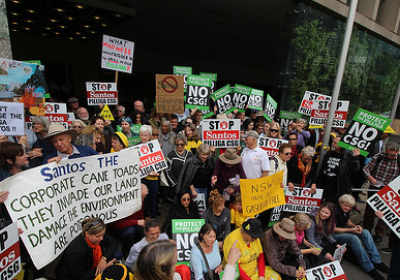Gamilaraay elder Auntie Bowie Hickey and daughter Vanessa Hickey expressed their deep gratitude to those protesting outside a gas industry forum on August 3.
The Wilderness Society called the protest to highlight the widespread opposition to Santos’ Narrabri gas project in the Pilliga Forest.











